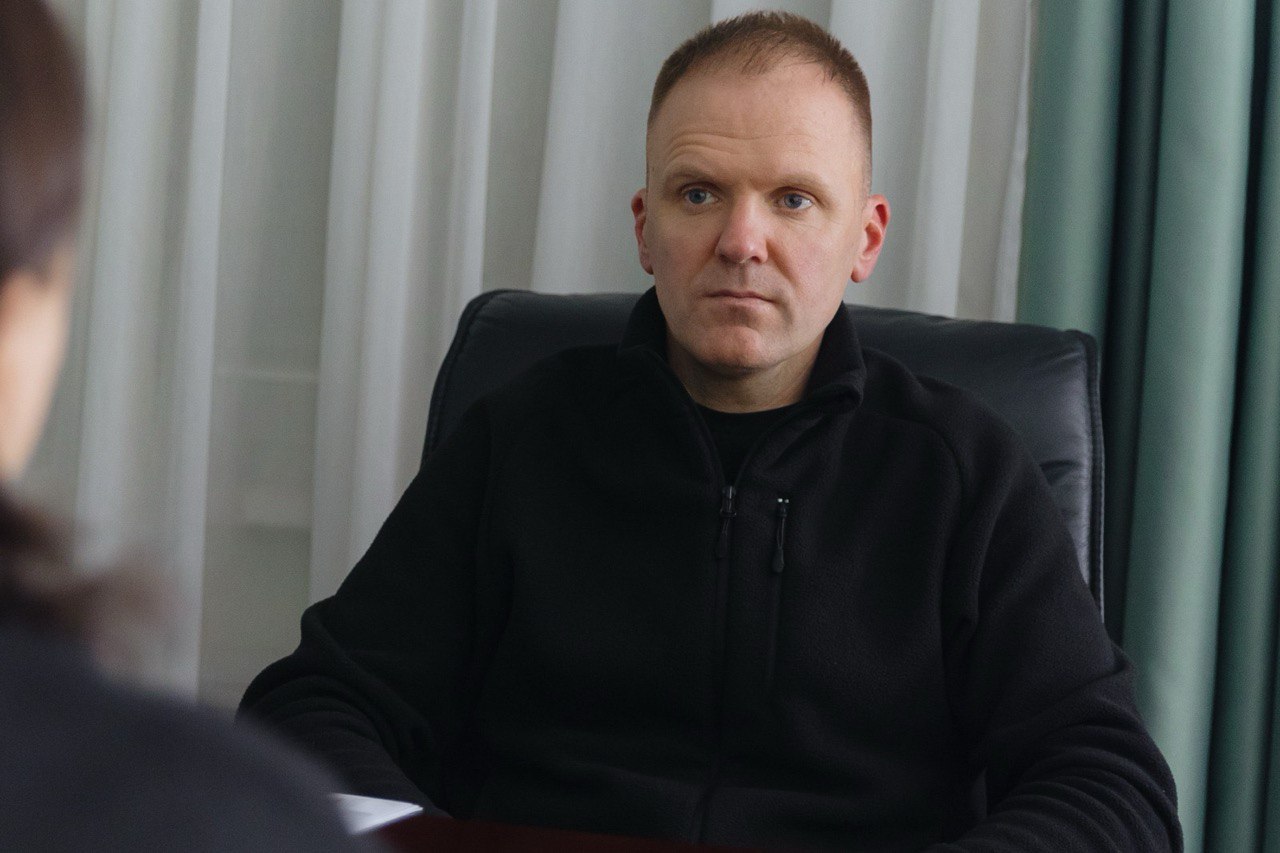21-year-old guard Nazar on the defense of Kyiv region and the destruction of the enemy “Grad”

A burning gas station and huge smoke clubs are the first picture of the war Nazar remembers. He decided to undergo military service in the ranks of the NGU himself. I really liked the name, he recalls. In the winter of 2022, the guy fell ill with coronavirus, and the next day after his recovery, he began a completely different life.

“We were raised for alarm at 4.30. It was February 24. They received weapons, ammunition, ammunition and left for Kiev. I want to say right away that I am a soldier. I was not aware of the strategic objectives of the command. Therefore, I can only tell you what I saw with my own eyes and what our unit did. We did not know where our final destination was, moved many times, did not stay anywhere for a long time. Then there was no front. Often we did not know who was to the right and left of us: their own or our enemies. As they arrived at a new point, they tried to throw off everything superfluous and began to dig. Sometimes under fire. If you want to live, dig, as they say. They dug what they could: shovels, fragments of slate, hands and feet. It turned out that it was possible. Our main task is to maintain positions and help in the evacuation of civilians. In the event of a sudden appearance of the enemy, we should have entered into battle with him. However, a more effective tactic is to detect enemy forces and coordinate artillery fire. Once they noticed a Russian “Grad” in the forest. At first they thought to hit it with a grenade launcher, but in the forest it is inconvenient to do this, because the grenade can change its trajectory. And they handed the coordinates to the mortars and they destroyed the target,” the guard recalls.
Nazar's battle group suffered no casualties. For the most part, this is due to the skillful work of commanders and the training of personnel, says the national guard. It really helps when the enemy is opposite. However, the eyes of enemy drones always followed the guards and pointed artillery at the positions of our guys.
“It used to be that shells burst every 30 seconds. Without exaggeration. When flying from the sky, no matter how skillful a fighter you are, you have little protection. We were lucky. When you know the characteristics of the enemy's weapons, study the terrain well, master your own weapons perfectly - this helps in battle. But from artillery, all these skills do not help much. Our advantage was mobility. We moved often. Sometimes they appeared where the enemy did not expect to see us. And this disrupted his plans, forced him to change the routes of the columns to more complicated and dangerous ones. But we had no direct contact with the Russians. For our unit, direct contact with the enemy would be an undesirable outcome. Because direct contact is loss: killed and wounded. We did not avoid collisions and did not run away. And we occupied such positions on which it is unprofitable for the enemy to attack, and we could inflict fire on him and direct our artillery.”

Nazar understands perfectly what he is doing, why and what is the ultimate goal of his work. In war, the guard says, there is a time and place for everything: to perform combat tasks and rest, time to fire and time to hide from shelling, a place for courage and for fear. The main thing is not to let fear take over you, but to learn to manage it.
“The commander of our battle group, a cool man, said: fear is normal, only fools are not afraid. When there was some dangerous situation, battle or shelling, we did as the commander says, clearly followed orders. And as it all went by, there was an understanding of what a mess we were in. That's how they fought fears,” Nazar recalls.
After the war, traces remain in people, and in the ground. After Nazar's unit destroyed the enemy “Grad” with ammunition, almost nothing remained of that place. Trees were uprooted, metal melted, all living things burned. And such a picture was everywhere he came, the so-called “Russian peace”: clogged, killed, wounded, destroyed houses and infrastructure. The war also left traces in Nazar.
“When we were taken to the rear, the first few days I couldn't just sleep. I understood perfectly well that we were safe, that there was no enemy, here all his own. But when someone entered the dungeon or tent, they immediately fell asleep, as if the air was pressing. After completing the task, we were given a few days of vacation and I went home. Mom said that I changed a lot,” says the fighter.
Behind calm eyes, a straight posture and a firm handshake lie the experienced shelling, marches, and combat exits. At the age of 21, the young veteran perfectly remembers almost every day of the war — the war for his Ukraine, for the people, for his relatives, for his own youth and for his future. And in victory in this war, Nazar is completely confident.
National Guard of Ukraine






